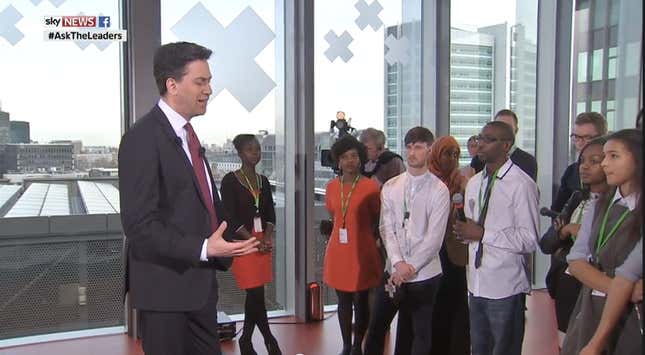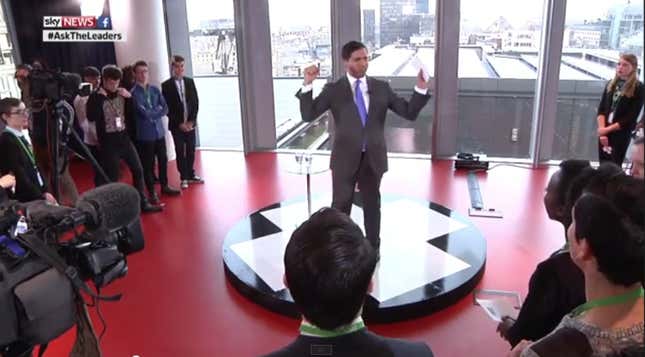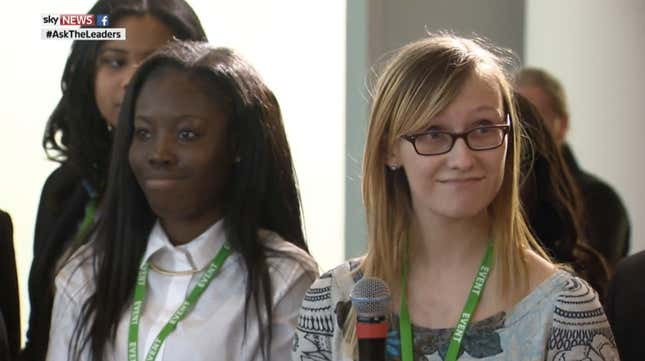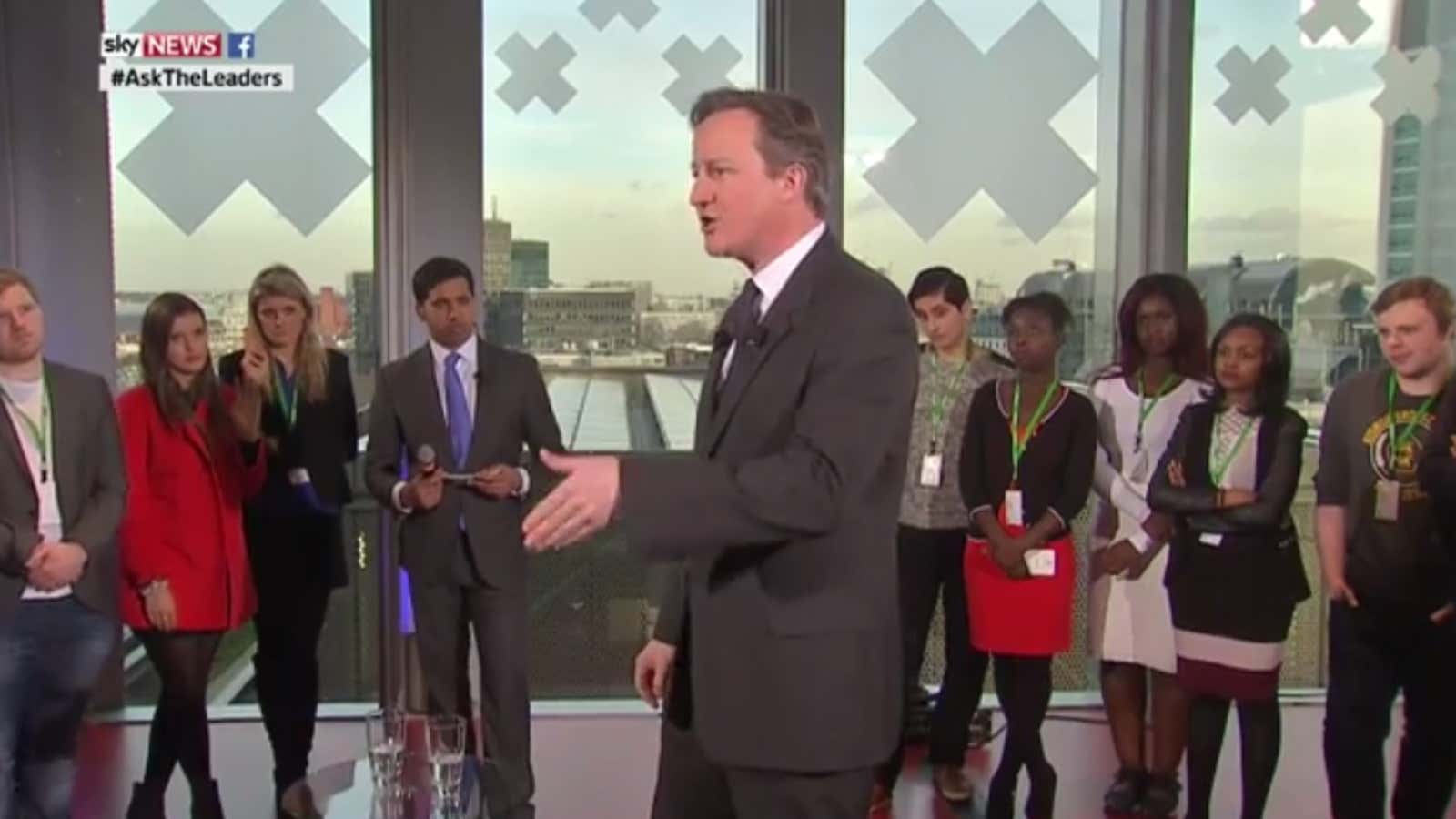It might go down in history as an odd experiment, never to be repeated. It might become a long-lived and much-loved pre-election tradition. Either way, there has never been anything quite like yesterday’s day-long Q&A with Britain’s main political party leaders. The event, dubbed “Stand up and Be Counted: Ask the Leaders,” was jointly run by Sky News and Facebook:
The seven-hour marathon online broadcast saw four party leaders—prime minister David Cameron of the Conservatives, Ed Miliband of Labour, Nick Clegg of the Liberal Democrats, and Natalie Bennett of the Greens—pass through Facebook’s London office to field questions from young people. (Nigel Farage of the UK Independence Party was invited but didn’t participate.) Sky reporters chatted with various groups of young people in between the half-hour sessions with individual leaders. And there was filler. And dead air.
The program had an unvarnished, amateurish air—the cameras never stopped rolling, and microphones were only occasionally muted. As a result, the audience was treated to long swathes of time in which young people milled around the studio and mic’ed up reporters chatted with producers about their cues, post-work plans, and much else besides. (“I need a drink,” one said, four-and-a-half hours in.)

As a group, the audience was ethnically diverse and ranged from 16 to 25. They offered intelligent, clear questions, cited examples from their lives, and didn’t shy away from controversial policies or thorny issues. Conspicuously, however, they rarely lost their cool or went on the attack. Sky’s summary of the audience “taking leaders to task” implies more confrontation than actually took place.
Unused or uninterested in the ways of point-scoring political discourse, the audience asked reasonable questions and expected reasonable answers. Even the questions that came in via social media—that bastion of superficiality, anarchy, or worse—were admirably level-headed (though also, presumably, thoroughly vetted). What gimmicks there were came from the professionals in charge, such as an interview with Miliband via a selfie stick.
“Ask the Leaders” challenged the conventional wisdom about millennial apathy and angst. For the reporters running the show, this was something of a problem.
“Do chip in when the next guy comes in.”
(From 1:29:50 in the video above)

After the first Q&A session, with Bennett of the Green Party, anchor Faisal Islam took to the central stage to address the group, urging them to be a bit more argumentative when the next politician arrived. “Do chip in,” he urged. “We need people to see that you’re holding them to account better than we can.”
Since the Greens “talk a good game on housing,” perhaps someone should have needled Bennett with a question about her feeling about building houses on parkland, Islam suggested. (But he didn’t want to put questions in anyone’s mind, he added.) And then the sound cut off.
“Are you convinced by that, Rebecca?”
(From 6:15:30 in the video above)

Later, a questioner named Rebecca asked Cameron about the devolution of power to Wales and Scotland. The prime minister took it as an opportunity to pivot and talk about “English votes for English laws,” a contentious policy that emerged after Scotland’s narrowly voted against independence last year.
When Cameron finished, Islam asked Rebecca whether she was convinced by the answer and seemed crestfallen when she said she was. “Gah… lots of convincing going on today,” the reporter said.
What did we learn?
The leaders seemed pleased with their cameos. Was it because the questioners gave them an easy ride, or because politicians these days rarely get airtime in a setting where scoring quick points or drowning out the opposition isn’t the norm?
Whatever the case, the relaxed atmosphere of the event did not produce any particularly new or noteworthy insights. But it did show that young people, when given the opportunity, can engage in political debate with a maturity and composure that they often don’t get credit for. And that’s something worth repeating.
